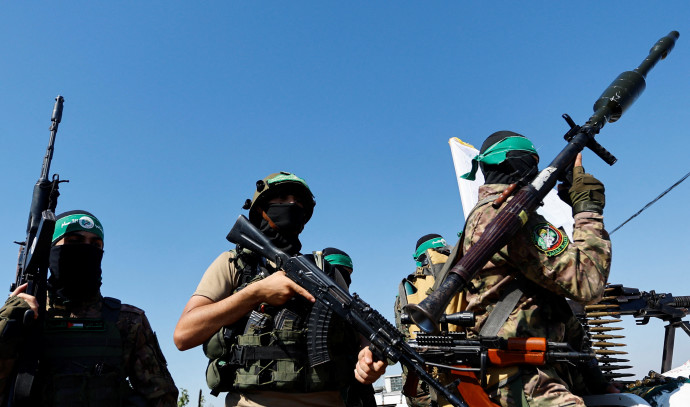30,000 was always an estimate for how many fighters Hamas had. We now know that the number was too low. Following numbers provided by Israeli defense sources, Israel has killed around 13,000 members of Hamas.
Already back in early February, the IDF had wounded another 10,000 to such a degree that it was assessed that they would not be able to return to battle and had arrested another 2,300.
The IDF has not provided updated wounded and arrest numbers since then, but simply adding together a series of public announcements regarding arrests, such as the more than 500 Hamas terrorists arrested at Shifa Hospital, at least around 3,500 would have been arrested to date.
This means that at least around 26,000 Hamas members have been put out of action by Israel to date when adding together killed, wounded, and arrested totals.
Until Tuesday, Israeli defense sources had said that there were four Hamas battalions in Rafah and two left in central Gaza, leaving around 6,000 Hamas forces.
Adding 26,000 and 6,000 would have broken the 30,000 total but could be considered close enough to be generally accurate. However, on Tuesday, Strategic Affairs Minister Ron Dermer said that Hamas has 8,000 of its forces in Rafah. Adding an additional 4,000 to 32,000 brings us up to 36,000.
But that is not the end of it. Recently, IDF sources gave a briefing indicating that around 70% of Hamas forces in Khan Yunis, out of an original 4,500, had been removed from the battlefield. That would leave at least 1,300 additional forces in Khan Yunis.
Similarly, there have been reports that Hamas still had at least a few thousand forces left in northern Gaza. Adding all these numbers up, one comes closer to a pre-war Hamas force of 40,000 or more and the idea that it still has around 15,000 or more remaining forces.
None of this takes credit away from Israel for having succeeded at taking apart 18 out of Hamas's 24 battalions and from having succeeded at removing - even with these new numbers - more than 60% of Hamas forces from the battlefield, an impressive feat.
Why did the IDF continue to repeat the 30,000 number?
The truth is that even as almost all official channels from the IDF repeated the 30,000 number, a couple of high officials always let slip, in less regulated briefings, that the actual number was closer to 40,000.
For this reason, when the Jerusalem Post assessed the overall numbers, it always gave two statistics: how much of Hamas was removed and remained based on a 30,000 number and a 40,000 number.
Have new terrorists joined Hamas during the course of the war in a way that the IDF has been unable to measure? Was the decision to go with 30,000 to inflate the military's progress? If it was due to uncertainty, why did the IDF not repeat both numbers in official channels and briefings, in line with its usually conservative estimate policy?
There has been at least one example where the IDF seemed to cave to political pressure on the numbers. Up until February 1, defense officials had said Israel had killed around 10,000 Hamas forces. By February 12, Prime Minister Benjamin Netanyahu was saying the IDF had killed 12,000 Hamas forces.
Although multiple defense sources said the number was still closer to 10,000/10,500 in real-time, within days, the IDF had shifted its total to be consistent with what Netanyahu had said publicly. However, these numbers are not just part of the public relations war.
Israel and the IDF need to make assessments about the future of the war and how long it will take to truly defeat Hamas (and what will be lost by the continuation of the war for that amount of time) based on cold-hard factual numbers and not based on wishful thinking.
There is no question that, given an unlimited amount of time, the IDF could eventually eliminate Hamas as a fighting force. But time is not unlimited. Anyone who did not know that was reminded when the US decided not to veto the recent UN Security Council resolution calling for a ceasefire.
The US has made it clear that despite that vote, it still supports Israel's goal of defeating Hamas, but only within certain limits in its actions and probably only within a quickly closing time frame.

